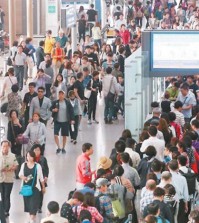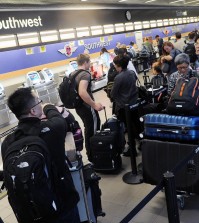- California Assembly OKs highest minimum wage in nation
- S. Korea unveils first graphic cigarette warnings
- US joins with South Korea, Japan in bid to deter North Korea
- LPGA golfer Chun In-gee finally back in action
- S. Korea won’t be top seed in final World Cup qualification round
- US men’s soccer misses 2nd straight Olympics
- US back on track in qualifying with 4-0 win over Guatemala
- High-intensity workout injuries spawn cottage industry
- CDC expands range of Zika mosquitoes into parts of Northeast
- Who knew? ‘The Walking Dead’ is helping families connect
Uber’s proposal to S. Korea backfires as tensions increase
(Yonhap) — Discord between Uber Technologies Inc. and South Korea is growing deeper after the government sharply rebuffed the U.S. cab-hailing app creator’s request to allow its driver become legal through a registration system.
The Ministry of Land, Infrastructure and Transport rejected Uber’s proposal on Thursday, saying the registration system is unacceptable as it runs counter to government policy, which aims to scale down the number of operating taxis because they are already oversupplied.
“A driver registration system means, in effect, a request for them to become licensed, which we cannot accept,” the ministry said in a statement.
Uber, in its counter-statement released Friday, said the registration system “does not mean adding to the overall number of vehicles,” but a step to “regulate cars that are already on the road.”
David Plouffe, Uber’s senior vice president of policy and strategy, had proposed at a press conference in Seoul that Korea adopt a registration system and said that his firm is working with Seoul officials on a solution.
The ministry denied that Uber and the government were in such talks, reconfirming its pledge to root out illegal taxi operations that make money by providing a ride using private or rented vehicles.
The local court is expected to hand down a ruling on Uber CEO Travis Kalanick and the head of Uber Korea, who have both been indicted by the prosecution on charges of violating transportation law.
The Korea Communications Commission, the telecom watchdog, referred Uber late last month to the prosecution for flouting the law that requires registration for a location-tracking function, while the Seoul city government is running a reward program for those who report Uber drivers or cars.
The San Francisco, California-based Uber was launched in Seoul in 2013 starting with its premium limousine service UberBlack, followed by UberTaxi and UberX.















